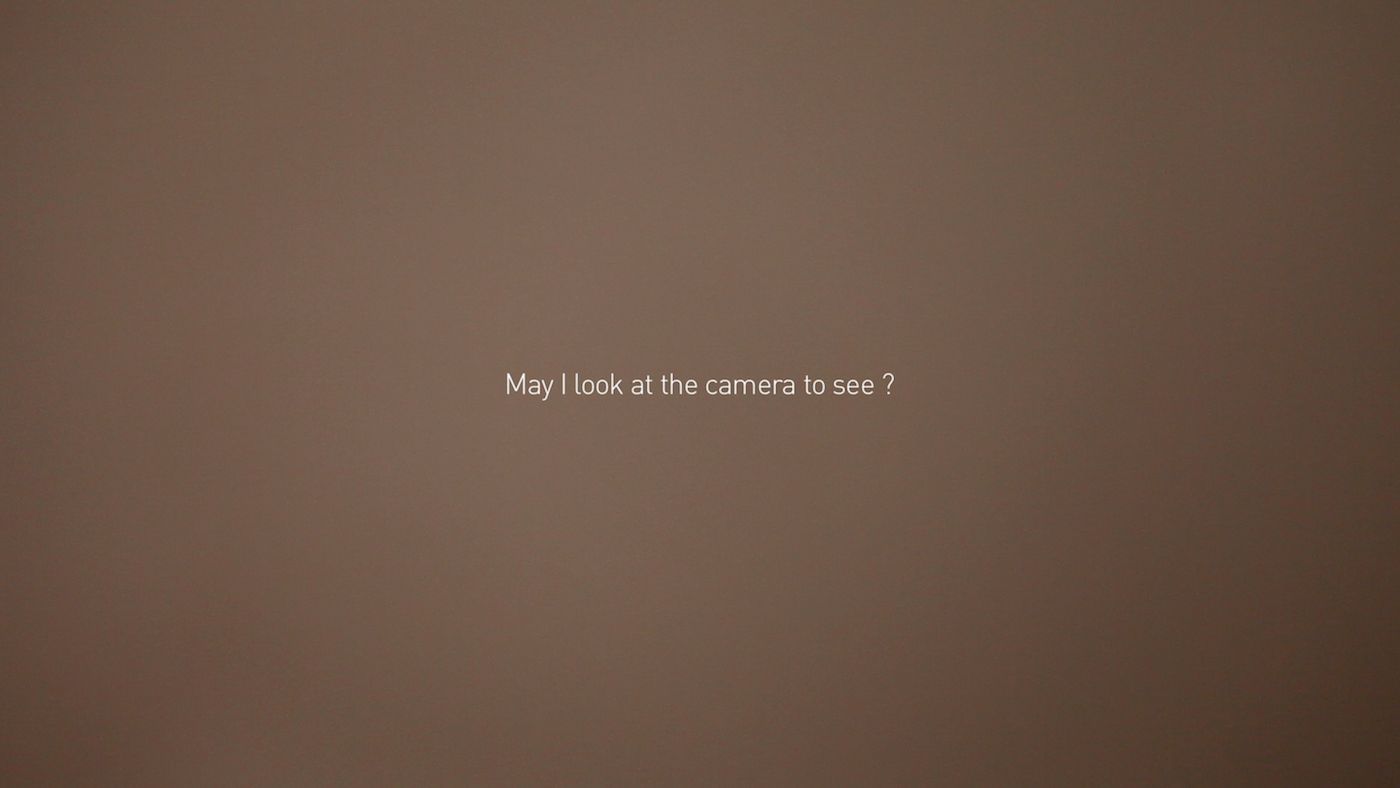A Filmmaker’s Impromptu Conversations on the Streets of Tunis
Naila Kelani
Hyperallergic
November 2016
Link to the article
Link to Foyer
Ismaïl Bahri’s film began with a simple premise: he would walk around Tunis with a white sheet of paper taped over his camera lens and record the changes of light.
Last summer, French-Tunisian artist Ismaïl Bahri returned to his native Tunisia to make a film. It began with a simple premise: he would walk around Tunis with a white sheet of paper taped over his camera lens and record the changes of light enacted by the wind and other elements of the city. On paper, it sounds like the conceit of an undergrad film class exercise. In practice, though, his walk ends up leading him through conversations with curious passersby. These strangers approach him without hostility, but they are persistent in interrogating him about his intentions and don’t hesitate to bring their own suggestions and critiques to his work.
Bahri’s film, titled Foyer, almost takes the shape of a quest narrative — there is a close call with the authorities here, an apocryphal-sounding story there — except none of it is scripted or planned. The limitation he places on the visual ends up creating a supernatural sense of the space beyond the lens in a way that echoes the late Iranian filmmaker Abbas Kiarostami both in Bahri’s manipulation of sublime soundscapes and his use of nonprofessional actors to comment on what constitutes a film.
As a spectator, in the absence of any clear image, I was more attentive to people’s techniques for starting conversation; where they are hesitant, where they are bold, what they might be trying to reveal about themselves based on the questions they ask. “I’m a great enthusiast, a film-lover,” one man tells Bahri after a brief back-and-forth about camera techniques, “but my era and my life did not enable me to do what I love.” He seems almost disappointed that Bahri, lucky in his craft, chose to use that time on something so abstract.

For his part, Bahri’s questions are always derivative and only reciprocate curiosity. In an interview, he admits that he did not take the voices into account when he first started filming, and only realized as he progressed how the commentary on it seemed to be actively creating it. Everyone’s projections converge on the paper-as-screen-as-meeting place, viewers included, but even then we can only really guess what’s going on from our end, just as the participants are unsure of what the picture they are a part of will look like.
Light is supposed to be the central preoccupation of the project, but it manifests unexpectedly in sound, through conversations that linger on the mechanisms of color. One man wonders whether Bahri is white, and is reassured to hear that the artist lives in France versus in Tunisia where, he says, “the sun burns us. Misery burns us. Drugs burn us. Prison burns us.” Another believes people’s visual perception differs according to where they live. ‘Here’ is always compared to a transformative elsewhere. Norms vary not by place but by positionality; the fact that Bahri has undertaken such a strange project and also lives in France seems to confirm this for everyone he speaks to — to undertake something similarly, wonderfully aimless, they imply, would mean they’d have to remove themselves from the daily realities of their country. It’s an unsubtle, painful articulation of how they find any sense of personal freedom to be unavailable to them.
“Abroad, people live normally, people do what they want,” a young man says towards the end of the film. “For example, you like to hold a camera. Me, what I’d like to do if I could, is grab a policeman and walk him on a leash down the avenue.” There is a wave of exasperated protest from his friends, who want him to shut up and stop bothering the artist so they can swim in a nearby canal, and he counters that he’s only telling the reality.
I am fixated on this man because he will not stop talking. He takes up eight out of the film’s 30-something minutes, reeling off complaints and self-deprecating jokes. He’s aware that his woes make great content for an artist, but he doesn’t begrudge Bahri for it; more than anything he seems to look to him to back him up, to confirm that his art is a product of being foreign and prove that things in the country are as bad as he says they are. But just when you think you hear resignation in the man’s voice, the conversation trails off with a splash in the distance, and whatever train of thought is gone. The boys have lost interest and gone swimming. Who knows what’s next for them.
Disappointment and ennui are central to the conversations projected onto this paper but they are not fetishized. It would be hard to do that around the warm, lively energy of voices and inflections that color this film.
After the young men leave, we get a brief glimpse of the world beyond the sheet of paper and find a canal and line of houses mostly obstructed by a man in a white T-shirt. The paper returns to its place and when the light shifts just so, the screen resembles water glistening in the kind of late-afternoon sunlight during which it is nearly impossible to feel hopeless. Shortly after, the camera shuts off and allows the sound to run a few moments longer. The sounds of life seem to outlast the frustrations; everybody has reasons to be upset but if there is a dead end, no one has hit it yet. To end on a moment like this is no small thing.